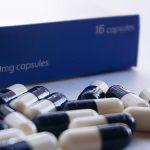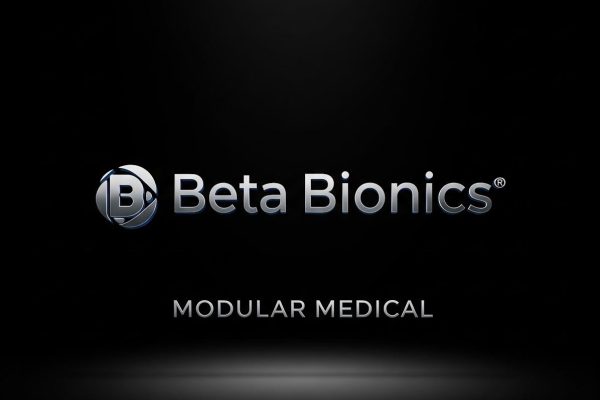
Abbott and Medtronic Partnership
FreeStyle Libre Technology Integration
Benefits for Diabetes Management
This innovative partnership promises to significantly enhance the quality of life for millions living with diabetes. By automating insulin adjustments, the integrated system allows users to focus less on constant glucose monitoring and more on living their lives to the fullest. The collaboration also hoes to expand access to advanced automated insulin delivery and smart MDI systems, offering best-in-class outcomes with the world’s most widely used CGM. Moreover, this technology has been shown to improve glucose control, lower HbA1c levels, decrease diabetes-related hospital admissions, and boost overall quality of life for users. With partial or full reimbursement available in over 40 countries, this life-changing technology is becoming increasingly accessible to those who need it most.
Abbott’s Strategic Expansion
In a strategic move to dominate the diabetes care market, Abbott has now forged partnerships with four of the largest automated insulin delivery system developers. This latest collaboration with Medtronic is part of a series of alliances aimed at improving and streamlining diabetes management, offering patients a wider array of choices for insulin administration. The FreeStyle Libre single-analyte CGM technology, already integrated with AID offerings from other insulin delivery companies, has set a new standard in the industry for accuracy, accessibility, and ease of use. With over 6 million users across more than 60 countries, Abbott’s Libre portfolio has firmly established itself as the world’s leading continuous glucose monitoring technology.
Increased Market Competition
The collaboration between Abbott and Medtronic is poised to intensify competition in the diabetes care market, particularly in the continuous glucose monitoring (CGM) and automated insulin delivery (AID) segments. This partnership strengthens Abbott’s position by integrating its world-leading FreeStyle Libre technology with Medtronic’s advanced insulin delivery systems. As a result, competitors like Dexcom (DXCM), who also lead in CGM technology, may face increased pressure to maintain their market share. The expanded reach of Abbott’s technology through this partnership could potentially draw users away from standalone products offered by other companies, compelling rivals to seek similar strategic alliances or develop more integrated solutions to remain competitive in the evolving diabetes care landscape. Insulet (PODD), a leader in tubeless insulin pump technology, is also well-positioned to compete in the evolving diabetes care market despite the Abbott-Medtronic partnership. The company’s Omnipod 5 system, the first tubeless, wearable automated insulin delivery system, gives Insulet a strong competitive advantage. Insulet is expanding its product offerings by developing Omnipod Go for Type 2 diabetes patients and integrating with multiple CGM systems, including Dexcom’s G7 and Abbott’s Freestyle Libre 2 Plus. The company’s CEO, Jim Hollingshead, expressed confidence in Insulet’s market position, stating they don’t see any immediate threats from competitors’ pipelines. Additionally, analysts believe Insulet’s market development efforts, expansion into new areas, and significant competitive lead will serve it well in maintaining its market share. Another interesting thought or question is “Will Insulet need to become an acquisition target of one of these companies?” Also, let’s not forget Tandem Diabetes Care (TNDM) has established itself as a key player in the competitive diabetes management market, offering innovative automated insulin delivery systems that integrate seamlessly with continuous glucose monitoring technology. As reported by Medical Device Network, the company’s recent launch of the Tandem Mobi, touted as the world’s smallest automated insulin delivery system, further solidifies its position alongside industry giants like Abbott and Medtronic in advancing diabetes care solutions.
Innovation and Development Pressure
The Abbott-Medtronic partnership is likely to spur a wave of innovation across the diabetes care industry. Competitors may feel compelled to accelerate their research and development efforts to match or surpass the capabilities of the integrated systems resulting from this collaboration. This could lead to:
* Faster development cycles for new CGM and AID technologies
* Introduction of novel features and functionalities in diabetes management devices
* Increased focus on user-friendly interfaces and seamless integration between different components of diabetes care systems
* Potential emergence of new partnerships or acquisitions among other industry players to combine complementary technologies
As the bar for technological advancement is raised, companies may need to invest more heavily in R&D to maintain their competitive edge in this rapidly evolving market.
Speaking of Innovation…
In a move that’s sure to spice up the insulin pump manufacturing scene, Modular Medical (MODD), a development-stage insulin delivery technology company that submitted its MODD1 next-generation insulin pump to the FDA for 510(k) clearance process earlier this year on January 19, 2024, announced on August 7, that the company has begun transferring its pilot line manufacturing operations to a Phillips Medisize site in Queretaro, Mexico. Trusted for nearly 60 years, Phillips Medisize, a Molex company, is a global leader in front-end design, development and manufacturing solutions for highly regulated industries — pharma, in vitro diagnostics, med tech, consumer, automotive and defense. Operating as a single integrated collaborator, they help their customers reduce risk and achieve product realization quickly and efficiently. Their innovation, quality and reliability enhance the lives of millions of people around the world. Modular Medical’s relocation is happening alongside the FDA’s ongoing 510(k) review of the MODD1 Insulin Delivery System. Chief Operating Officer Kevin Schmid confidently predicts that the manufacturing operation will be validated and ready for human-use production by early next year. The MODD1 system will be manufactured in a clean room in Queretaro, while the printed circuit board assembly will be crafted in Guadalajara, showcasing a truly international effort in diabetes care technology.
Modular Medical aims to revolutionize the diabetes market by addressing the “three-Cs” that have hindered pump adoption: complexity, cumbersomeness, and cost. The MODD1 is designed to be user-friendly and affordable, featuring a two-part patch pump design, an easy-to-learn interface, and scalable manufacturing. Paul DiPerna, Chairman and CTO of Modular Medical, believes that their simplified design will encourage “almost-pumpers” to adopt the technology without the complexity and expense of current solutions. As the company awaits FDA feedback, it plans to prepare applications for UKCA mark approval in the United Kingdom and move its pilot production line to a manufacturing partner in preparation for commercial launch. On Friday, August, 2, 2024, Modular Medical confirmed that they had taken the next step in their FDA process where they submitted their response to The FDA’s questions. The FDA now has until Sept 5, 2024 to either clear the device or respond with a second set of questions.
Gain Further Insights From The CEO of Modular Medical…
On Friday, August 9, our sister organization, Tribe Public (www.TribePublic.com), hosted a brief CEO Presentation and Q&A Webinar-based event with Jeb Besser, CEO of Modular Medical (NASDAQ: MODD). The event is titled “Diabetes Care Innovator Modular Medical Takes Next Steps.”






































































































































































































































